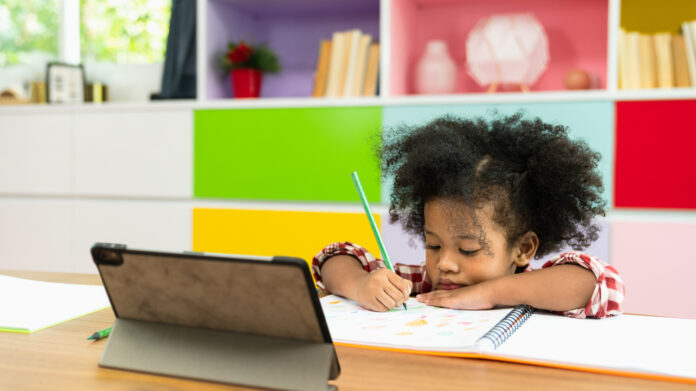“The public-school district was looking at four to six hours in front of a computer for virtual learning. Developmentally, that’s just not appropriate for a four-year-old with Down syndrome.”
Janie Neeley has a four-year-old son with Down Syndrome. In late Spring, she decided to enroll her son in K4 at their local public elementary school for this Fall. She reached out several times throughout the summer to discuss his Individualized Education Plan (IEP), to no avail. Then, in August, without any conversation or confirmation with Janie or her husband, he was suddenly enrolled.
“They did not try to do any assessments, and that was very concerning to us,” Neeley said. “There’s a lot of legwork beforehand when you have a child with a disability – you can’t just show up at the school and say, ‘Tada! We’re here.’ One week before school started, I said, ‘No, this isn’t how it works.’”
Like Neeley, a former teacher, some South Carolina parents have been able to make the tough decision to leave their public-school district and enroll in a private school or access some other learning arrangement. Many parents who have children with special needs have particularly felt that their child has been totally left behind in the current virtual environment, and far too many simply don’t have any other option.
COVID-19 has been an equal-opportunity education disruptor for students, but not all students have the felt the impact equally. For a student with special needs, there is really no substitute for face-to-face learning, and these students have already lost months of important therapies and instruction. They—as much or more than any other student group—are suffering because of not being able to be in the classroom.
Shannon Green, a single mom in Columbia, SC, has two boys with ADHD.
“I knew that [virtual learning] was not going to be successful for me,” Green said. “I try to be positive with this online learning, but I’m scared. I don’t want [my boys] to be left behind when it comes to their education.”
Allison Huffstutler in Simpsonville, SC has a daughter with a severe disability, and because she attends a local public school, she only had in-person classes 2 days a week to start the school year. That leaves 3 days a week in which Huffstutler must serve as her daughter’s teacher and therapist. Thankfully, Huffstutler’s other two children are attending classes in-person on those days.
“It’s really a blessing that the other two get to attend school in-person at a private school because while they are at school, I get to be home and focus on our daughter with a disability,” Huffstutler said. “Her education take a lot of hands-on, one-on-one focus. She can’t do any of it independently.”
Aside from just the practical issues of virtual learning, Huffstutler also shared that the lack of choices has been frustrating for their family.
“It is difficult not having a choice for my daughter with a disability,” Huffstutler said. “We were assigned a school that wasn’t our first choice, so it would be wonderful if there were more options. It is a little bit frustrating that we feel like she is not in the best fit school for her.”
The Greens and Huffstutlers are just two of the more than 550 families that shared their education story with My SC Education. Other families, such as the Rumseys, Washburns and Espinozas, have shared similar heartbreaking stories about virtual learning negatively impacting their children with special needs.
Although COVID-19 has certainly highlighted a lack of workable options for students with special needs, South Carolina has been falling behind our neighboring states in education outcomes for these students for several years. Last year, PPI found that South Carolina was last in the Southeast in 2017 4th grade reading achievement. 2019 results show a similar trend, with only Alabama behind the Palmetto State.
The SAFE Grants program could bridge the learning gap for some of these students through one-time, emergency education grants, giving them options for in-person instruction through an independent school education. However, the SAFE Grants program would only apply to moderate or low-income households. Neeley says that is what makes SAFE Grants so important.
“COVID-19 has kind of exposed the underbelly of what special needs families have been dealing with in terms of the school districts and their students’ needs not being met,” Neeley said. “I feel like there’s been access to school choice for people that have the financial capability, but for the average working family that door has not been open. That’s what makes the SAFE Grants so special.”
Unfortunately, the SAFE Grants program awaits a decision from the SC Supreme Court to determine if grants can continue as announced.
The Neeleys had the ability to choose another option for their student, but many South Carolina families don’t, and have no choice but to watch as their children are left behind.
Originally posted on Palmetto Promise. Republished with permission.









[…] the state’s hybrid system, where districts combine remote and in-person learning, there’s growing evidence that shows a lot of students are bailing, according to the state’s […]